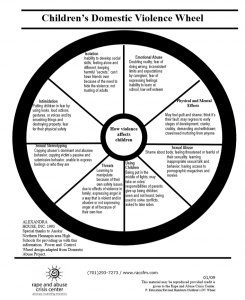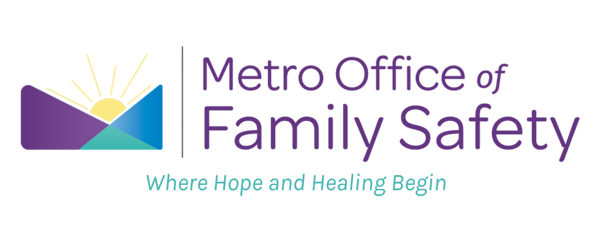Child Abuse
Do you know a child that has been abused? Everyone in Tennessee is required by law to report any child abuse or suspected child abuse immediately. To report child abuse, you can call the Child Abuse Hotline at 1-877-237-0004. You can also report child abuse online at https://apps.tn.gov/carat/.
The Nashville Children’s Alliance, located at the Family Safety Center, provides free services for child abuse victims like education, forensic interviews, and therapy sessions. Call the Nashville Children’s Alliance at (615) 327-9958.
On this page:
What is Child Abuse? Resources in Nashville Important Facts Red Flags If a Child Discloses Abuse
What is Child Abuse?
Child abuse is when a child’s parent or caregiver causes injury, death, emotional harm, or risk of serious harm to a child, either through their own actions or by failing to protect their child from those actions. Child abuse can include physical abuse, sexual abuse, emotional abuse, neglect, abandonment, exploitation, and substance abuse.
Resources in Nashville
- The Nashville Children’s Alliance provides free services for child abuse victims such as education, forensic interviews, and therapy sessions.
- Our Kids provides free services for child sexual abuse victims such as medical evaluations and crisis counseling. Their website also provides helpful information about child sexual abuse, how to talk to kids about abuse, and much more.
- The Tennessee Department of Children’s Services through their online reporting page or by calling the Child Abuse Hotline at 1-877-237-0004.
Important Facts
- A child is abused or neglected every 47 seconds in the U.S.
- 1 in 10 children will be sexually abused before their 18th birthday. Girls are much more likely to be sexually abused than boys.
- When child abuse is reported, the average age of victims is nine years old.
- Most offenders (90%) are someone the child knows.
- In 2013, about 1,500 children died because of abuse and neglect.
- 1 in 5 children between the ages of 10 and 17 are solicited for sex in person or online.
Source: Children’s Advocacy Centers of Tennessee
Red Flags
Red flags from the child:
- The child suddenly starts behaving very differently at home or at school.
- The child is not receiving the medical or physical attention they need even though it’s been brought to the parents’ attention already.
- The child has learning problems or difficulty concentrating.
- The child is always watchful, like if they always feel that something bad is about to happen.
- The child doesn’t have enough adult supervision.
- The child is very withdrawn or shy and does whatever is asked of them right away and without complaint.
- The child never wants to be at home. They go to school or other activities very early and don’t leave until very late.
- The child doesn’t like being around someone.
- The child tells you that they are being mistreated or that they are scared of someone.
Red flags from the adult:
- The parent or adult denies that the child has any problems or blames the child for any problems that do exist.
- The parent or adult tells teachers to punish the child harshly if they misbehave.
- The parent or adult thinks the child is bad, worthless, or just a burden.
- The parent or adult expects the child to do things that are too difficult or impossible for the child to do.
- The parent or adult turns the child into “the parent” or “the adult” in the house by making the child responsible for things the parent should do (like take care of the family, provide attention to people in the family, or satisfy family members’ emotional needs).
Red flags from both the adult and the child:
- The parent and the child rarely touch or look at each other.
- The parent and the child consider their relationship to be bad or negative.
- The parent and the child say they do not like each other.
Source: Child Welfare Information Gateway
If a child tells you that they have been abused or are being abused:
- DON’T panic or overreact.
- DON’T force the child to talk.
- DON’T promise anything you can’t control.
- DON’T confront the offender.
- DON’T blame the child or minimize their feelings.
- DON’T overwhelm the child with questions.
- DO remain calm.
- DO believe the child.
- DO allow the child to talk.
- DO show interest and concern.
- DO reassure and support the child.
- DO take action. It could save the child’s life.
Source: Children’s Advocacy Centers of Tennessee
To report child abuse in Tennessee, call the Department of Children’s Services’ Central Intake at 1-877-237-0004. Dial 911 if a child is in immediate danger.
Click here to download the Children’s Domestic Violence Wheel.
If you think that you are in an abusive relationship, look at our safety planning page for ways to increase your safety and our Other Help in Nashville page for community support.


